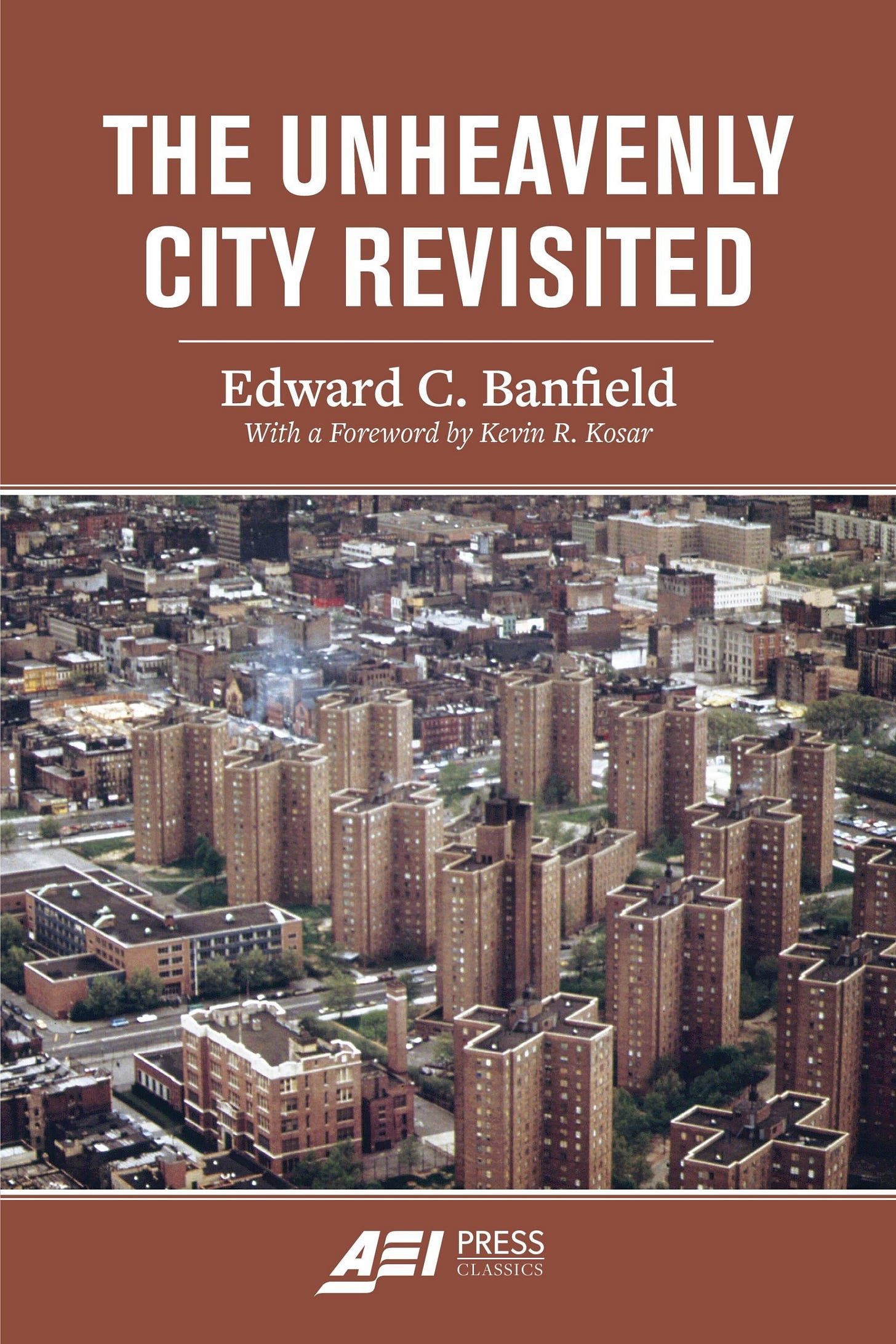Banfield on the Hyperbole of Urban Bankruptcy
As I never stop telling you, politics is nothing but an ocean of hyperbole! But seriously, folks, I just came across a fine debunking of political hyperbole while reading Edward Banfield‘s 1974 classic, The Unheavenly City Revisited.
A great part of the wealth of our country is in the cities. When a mayor says that his city is on the verge of bankruptcy, he means that when the time comes to run for reelection he wants to be able to claim credit for straightening out a mess that was left to him by his predecessor. What he means when he says that his city must have state or federal aid to finance some improvements is (1) the taxpayers of the city (or some important group of them) would rather go without the improvements than pay for it themselves); or (2) although they would pay for it themselves if they had to, they would much prefer to have some other taxpayers pay for it. Rarely if ever does a mayor who makes such a statement mean (1) that for the city to pay for the improvement would necessarily force some taxpayers into poverty; or (2) that the city could not raise the money even if it were willing to force some of its taxpayers into poverty. In short, the “revenue crisis” mainly reflects the fact that people hate to pay taxes and that they think that by crying poverty they can shift some of the bill to someone else.
[…]
That we have not yet been willing to pay the price of solving, or alleviating such “problems” even when the price is a very small one suggests that they are not really critical. Indeed, one might say that, by definition, a critical problem is one that people are willing to pay a considerable price to have solved.
Whenever I hear about governments’ fiscal woes, my go-to remedy is austerity. But I still furrow my brow when e.g. Californians tell me that higher taxes can’t balance their budgets. Most obviously, if unimproved land still has market value, governments clearly have yet to exhaust their tax base.
The post appeared first on Econlib.


